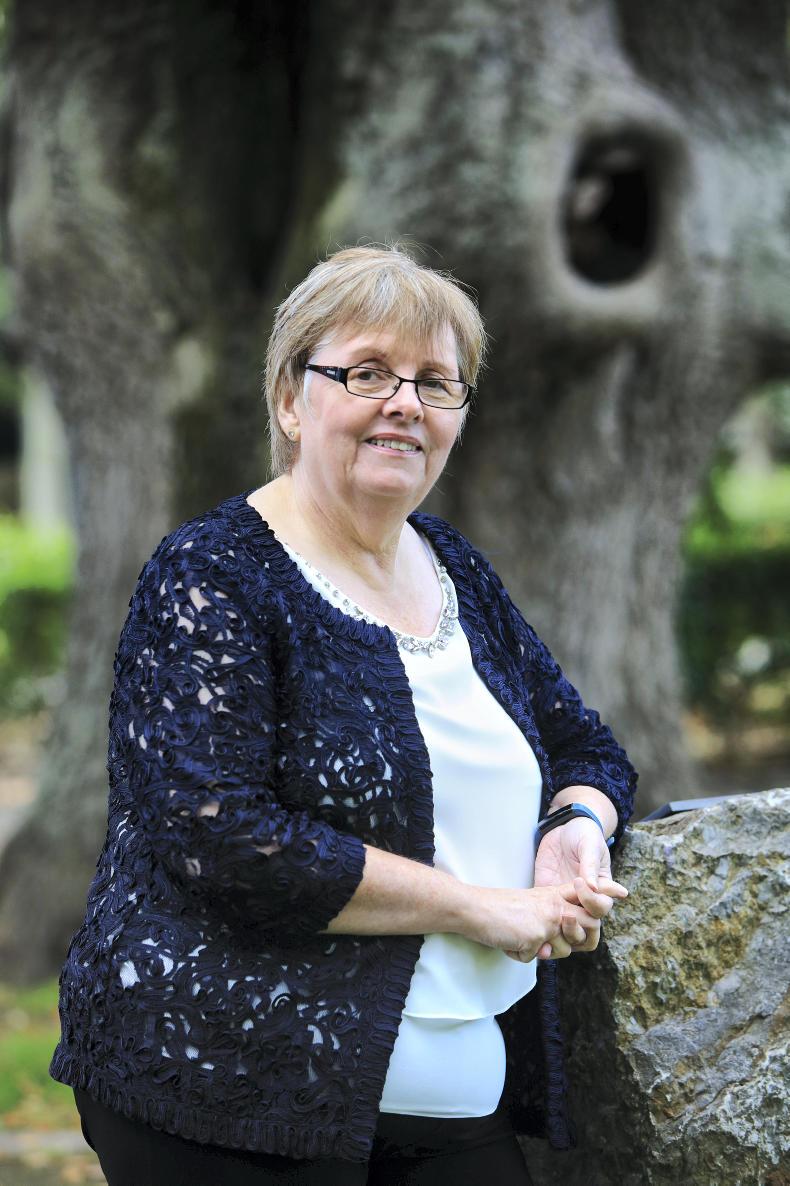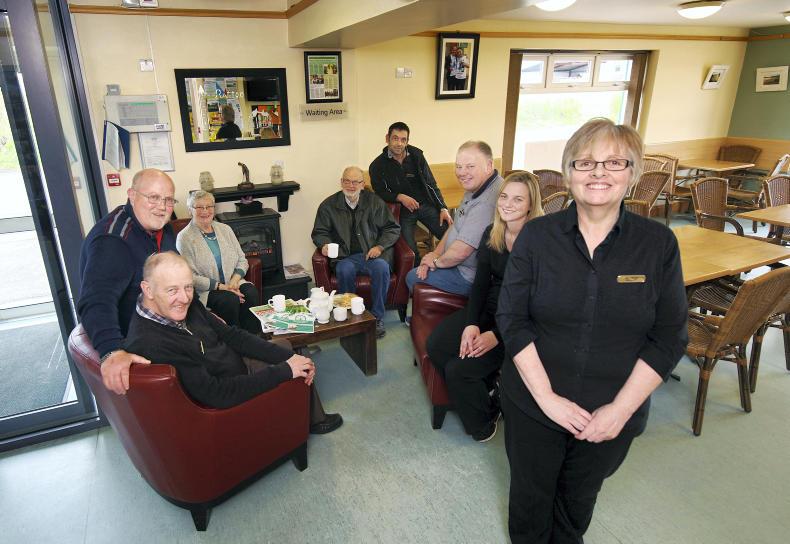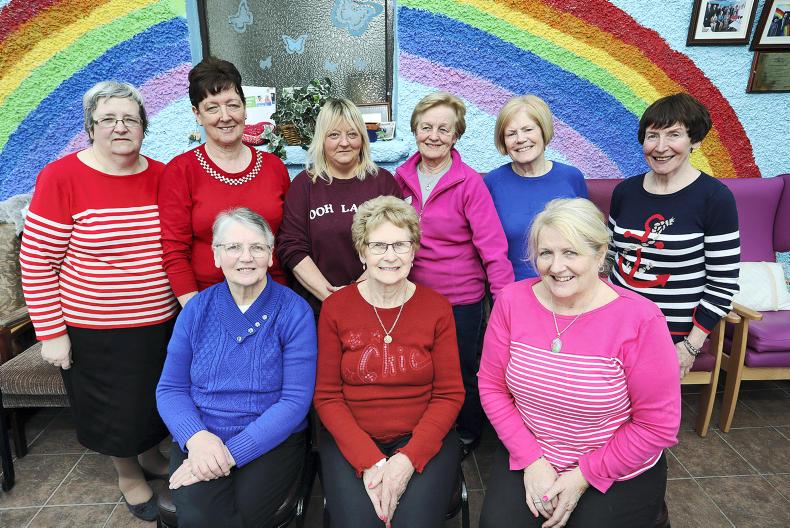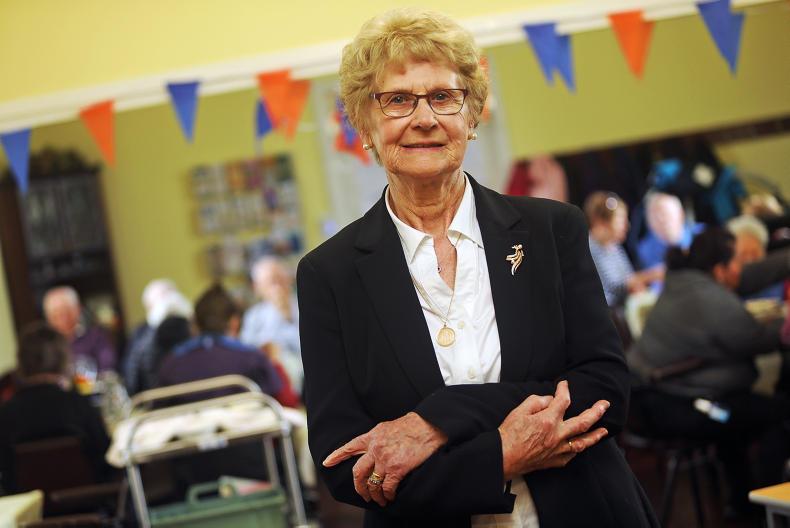Every day thousands upon thousands of people are supported by carers or day care and respite services right across the country. These services are a life-saver for people, keeping many from requiring full-time nursing home care. COVID-19 is posing a huge challenge to these groups who care for the most vulnerable people in our communities.
Carers are our eyes and ears
Patrick Towey is the general manager of RHS Home Care Co-operative. The co-operative has approximately 600 clients in counties Roscommon, Mayo and Galway and almost 300 carers employed. Patrick’s mission is to sustain the current level of quality care they give their clients.

Patrick Towey, general manager at RHS Home Care, Roscommon. \ Hany Marzouk
“Our carers are our eyes and ears. They are at the coalface. In many cases they are with our clients more often than their families can be. They can spot any setback in a client’s health and well-being. They really are superb.”
However, COVID-19 has shaken everyone to their core. “Our clients are really worried. Our carers are on edge, worried about their own health. They are afraid if they are asymptomatic that they could pass the virus to someone who is frail. But they are getting on with it.”
Patrick has sourced hand sanitisers, face masks and has doubled the order for personal protective equipment. “On the hand sanitisers, we are thankful to Lanesboro pharmacy who are getting us as many as we need.”
More carers needed
Patrick is happy with briefings from the HSE, but would like to see carers prioritised for testing.
“We have half our office staff working from home and we are working on getting the remainder sorted shortly. All clients are being grouped into high, medium or low dependency in case we have to re-allocate carers. We’ve had no new enquiries for care hours from Galway or Mayo but in Roscommon we’ve had to turn away six clients because we didn’t have the carers.”
He says that with so many losing their jobs, more people are available to support family members. This could free up carers who could be redeployed if their colleagues become ill. However, Patrick says these elderly people are afraid if they cancel care hours they won’t get them back when the threat from COVID-19 has past. “This shouldn’t be a concern and I have it in writing they won’t have their hours taken away,” says Patrick.
If you want to be a carer, contact RHS Home Care Co-operative at 090-6625988 or email info@rhshomecare.ie or send your CV to jobs@rhshomecare.ie
Feeding people
Nora Lucid estimates that up to 300 people a day use the support services offered at Buds Family Resource Centre in the village of Ballyduff in north Kerry.

Nora Lucid, project co-ordinator of The Ballyduff Family and Community Support Forum CLG, Ballyduff, Co Kerry. \ Valerie O’Sullivan
The services range from meals on wheels, a jobs club, local link bus, drugs counselling, a really well supported restaurant, an advice centre as well as classes for all ages to name but a few. The crèche, pre-school and after-school service looks after over 80 children aged from six months to 13 years
“The meals on wheels service provides up to 300 meals per week,” says Nora. “It helps people living alone, or recovering from a hospital stay. They could have been recommended for inclusion in the service by the public health nurse. Dedicated staff and volunteers are key to service delivery.”
So how has COVID-19 hit them?
“We had to close the crèche and playschool and let 11 staff go and that was terrible hard. We are still delivering 300 dinners a week. We closed the restaurant but we are offering a collection service for meals and these are mainly for men living alone and we are the only people they might see.

Nora Lucid at Bud's Ballyduff, Co Kerry, Family and Community Resource Centre. \ Valerie O'Sullivan
“We are making up food parcels and we expect the need for them to grow and we are still collecting from Food Cloud for the parcels. Our volunteers are great and we have had young people offering help and that’s great to see too.”
Nora says they are operating with a skeleton staff. “People are so afraid. Mental health appointments have been cancelled and some of these people cannot manage without social interaction. The social isolation is very hard on families who need support but our one-parent support worker has been able to keep in touch with the families she supports.”
Life saving centre
For the past 25 years, Mae Murphy has been running a social care centre in Drumkill, Co Monaghan. She transformed an old building into the centre which she found was going to be more than just somewhere for people to meet. Mae, upon completing a needs assessment of older people, found they needed chiropody, hairdressing, library, laundry, showers and personal care. All these services are available in Drumkill. Add in a three-course meal, live band, dancing, exercise, games, bingo and a cup of tea and a snack before leaving and it’s a full-on day out,

The wonderful volunteers of the Drumkill Day Care Centre from left Gretta Connolly, Mae Murphy, Doreen Burns and back from left Marie Cassidy, Sadie Murphy, Fiona Connolly, Majella Kieran, Kathleen Murphy and Kathleen Greenwood. \ Lorraine Teevan
What’s extraordinary about this centre is that it is run by 15 volunteers, along with a group of CE scheme workers, volunteers from St Vincent de Paul and support from Monaghan Age Friendly. With 77 people on their register, the centre draws people from as far away as Lough Egish and Knockatallon.
Drumkill parish centre operates five days a week, with three of those days devoted to services for those with dementia and Alzheimer’s disease staffed by professionals who specialise in this work.
Now celebrating her 81st birthday, Mae is frightened by what lies ahead. “We’ve had to close our doors and honestly I don’t know how some of our people will survive without Drumkill day care.”
“I have been in contact with 10 of them who live alone. They can’t get out for messages or anything so they have all been referred to the Saint Vincent de Paul. We are able to continue with meals on wheels which had been delivering to up to 50 people a day.”
Mae says most of their clients are coping well but are very afraid. “Neither my husband or I have been out at all and it’s the same with most people. They are taking every precaution.”
Community-based home care
Much like the credit unions, some home care services are community-based, with voluntary boards. One such social economy business is Carebright, which is based in Croom Community Enterprise Centre, Co Limerick.
Collette Ryan is general manager and says the care service began as a small CE scheme, with local contacts providing the clients.
It provides over 130,000 hours of care to over 600 clients
Then in the mid-2000s the first homecare programme was established. That initiative allowed this community project to move from being a CE scheme to becoming a service provider for the HSE. And it’s been on a growth curve ever since.
Now it employs 250 carers and six chiropodists as well as a management and admin team. It provides over 130,000 hours of care to over 600 clients across Limerick city and county, all of north Cork and as far as Toomevara in north Tipperary.
Planning
Collette has been planning for COVID-19 for almost two months. “We are well covered for hand sanitisers and PPE and we have more ordered. Thankfully, so far our carers are all well. They are working as normal but there is fear and anxiety. They are going into homes to deliver essential services such as personal care and bowel care and the use of hoists.”
Their routine has gone and there’s no respite
She says there is a notable increase in family members who are working from home or who have lost their jobs taking on some of the care of a loved one. Clients are also cutting their hours as they are afraid of contracting the virus from a carer.
Care of those with dementia or who are users of day care has been badly hit. “Their routine has gone and there’s no respite. That this could go on for months is very hard on these people and those who care for
them.”
Every day thousands upon thousands of people are supported by carers or day care and respite services right across the country. These services are a life-saver for people, keeping many from requiring full-time nursing home care. COVID-19 is posing a huge challenge to these groups who care for the most vulnerable people in our communities.
Carers are our eyes and ears
Patrick Towey is the general manager of RHS Home Care Co-operative. The co-operative has approximately 600 clients in counties Roscommon, Mayo and Galway and almost 300 carers employed. Patrick’s mission is to sustain the current level of quality care they give their clients.

Patrick Towey, general manager at RHS Home Care, Roscommon. \ Hany Marzouk
“Our carers are our eyes and ears. They are at the coalface. In many cases they are with our clients more often than their families can be. They can spot any setback in a client’s health and well-being. They really are superb.”
However, COVID-19 has shaken everyone to their core. “Our clients are really worried. Our carers are on edge, worried about their own health. They are afraid if they are asymptomatic that they could pass the virus to someone who is frail. But they are getting on with it.”
Patrick has sourced hand sanitisers, face masks and has doubled the order for personal protective equipment. “On the hand sanitisers, we are thankful to Lanesboro pharmacy who are getting us as many as we need.”
More carers needed
Patrick is happy with briefings from the HSE, but would like to see carers prioritised for testing.
“We have half our office staff working from home and we are working on getting the remainder sorted shortly. All clients are being grouped into high, medium or low dependency in case we have to re-allocate carers. We’ve had no new enquiries for care hours from Galway or Mayo but in Roscommon we’ve had to turn away six clients because we didn’t have the carers.”
He says that with so many losing their jobs, more people are available to support family members. This could free up carers who could be redeployed if their colleagues become ill. However, Patrick says these elderly people are afraid if they cancel care hours they won’t get them back when the threat from COVID-19 has past. “This shouldn’t be a concern and I have it in writing they won’t have their hours taken away,” says Patrick.
If you want to be a carer, contact RHS Home Care Co-operative at 090-6625988 or email info@rhshomecare.ie or send your CV to jobs@rhshomecare.ie
Feeding people
Nora Lucid estimates that up to 300 people a day use the support services offered at Buds Family Resource Centre in the village of Ballyduff in north Kerry.

Nora Lucid, project co-ordinator of The Ballyduff Family and Community Support Forum CLG, Ballyduff, Co Kerry. \ Valerie O’Sullivan
The services range from meals on wheels, a jobs club, local link bus, drugs counselling, a really well supported restaurant, an advice centre as well as classes for all ages to name but a few. The crèche, pre-school and after-school service looks after over 80 children aged from six months to 13 years
“The meals on wheels service provides up to 300 meals per week,” says Nora. “It helps people living alone, or recovering from a hospital stay. They could have been recommended for inclusion in the service by the public health nurse. Dedicated staff and volunteers are key to service delivery.”
So how has COVID-19 hit them?
“We had to close the crèche and playschool and let 11 staff go and that was terrible hard. We are still delivering 300 dinners a week. We closed the restaurant but we are offering a collection service for meals and these are mainly for men living alone and we are the only people they might see.

Nora Lucid at Bud's Ballyduff, Co Kerry, Family and Community Resource Centre. \ Valerie O'Sullivan
“We are making up food parcels and we expect the need for them to grow and we are still collecting from Food Cloud for the parcels. Our volunteers are great and we have had young people offering help and that’s great to see too.”
Nora says they are operating with a skeleton staff. “People are so afraid. Mental health appointments have been cancelled and some of these people cannot manage without social interaction. The social isolation is very hard on families who need support but our one-parent support worker has been able to keep in touch with the families she supports.”
Life saving centre
For the past 25 years, Mae Murphy has been running a social care centre in Drumkill, Co Monaghan. She transformed an old building into the centre which she found was going to be more than just somewhere for people to meet. Mae, upon completing a needs assessment of older people, found they needed chiropody, hairdressing, library, laundry, showers and personal care. All these services are available in Drumkill. Add in a three-course meal, live band, dancing, exercise, games, bingo and a cup of tea and a snack before leaving and it’s a full-on day out,

The wonderful volunteers of the Drumkill Day Care Centre from left Gretta Connolly, Mae Murphy, Doreen Burns and back from left Marie Cassidy, Sadie Murphy, Fiona Connolly, Majella Kieran, Kathleen Murphy and Kathleen Greenwood. \ Lorraine Teevan
What’s extraordinary about this centre is that it is run by 15 volunteers, along with a group of CE scheme workers, volunteers from St Vincent de Paul and support from Monaghan Age Friendly. With 77 people on their register, the centre draws people from as far away as Lough Egish and Knockatallon.
Drumkill parish centre operates five days a week, with three of those days devoted to services for those with dementia and Alzheimer’s disease staffed by professionals who specialise in this work.
Now celebrating her 81st birthday, Mae is frightened by what lies ahead. “We’ve had to close our doors and honestly I don’t know how some of our people will survive without Drumkill day care.”
“I have been in contact with 10 of them who live alone. They can’t get out for messages or anything so they have all been referred to the Saint Vincent de Paul. We are able to continue with meals on wheels which had been delivering to up to 50 people a day.”
Mae says most of their clients are coping well but are very afraid. “Neither my husband or I have been out at all and it’s the same with most people. They are taking every precaution.”
Community-based home care
Much like the credit unions, some home care services are community-based, with voluntary boards. One such social economy business is Carebright, which is based in Croom Community Enterprise Centre, Co Limerick.
Collette Ryan is general manager and says the care service began as a small CE scheme, with local contacts providing the clients.
It provides over 130,000 hours of care to over 600 clients
Then in the mid-2000s the first homecare programme was established. That initiative allowed this community project to move from being a CE scheme to becoming a service provider for the HSE. And it’s been on a growth curve ever since.
Now it employs 250 carers and six chiropodists as well as a management and admin team. It provides over 130,000 hours of care to over 600 clients across Limerick city and county, all of north Cork and as far as Toomevara in north Tipperary.
Planning
Collette has been planning for COVID-19 for almost two months. “We are well covered for hand sanitisers and PPE and we have more ordered. Thankfully, so far our carers are all well. They are working as normal but there is fear and anxiety. They are going into homes to deliver essential services such as personal care and bowel care and the use of hoists.”
Their routine has gone and there’s no respite
She says there is a notable increase in family members who are working from home or who have lost their jobs taking on some of the care of a loved one. Clients are also cutting their hours as they are afraid of contracting the virus from a carer.
Care of those with dementia or who are users of day care has been badly hit. “Their routine has gone and there’s no respite. That this could go on for months is very hard on these people and those who care for
them.”












SHARING OPTIONS